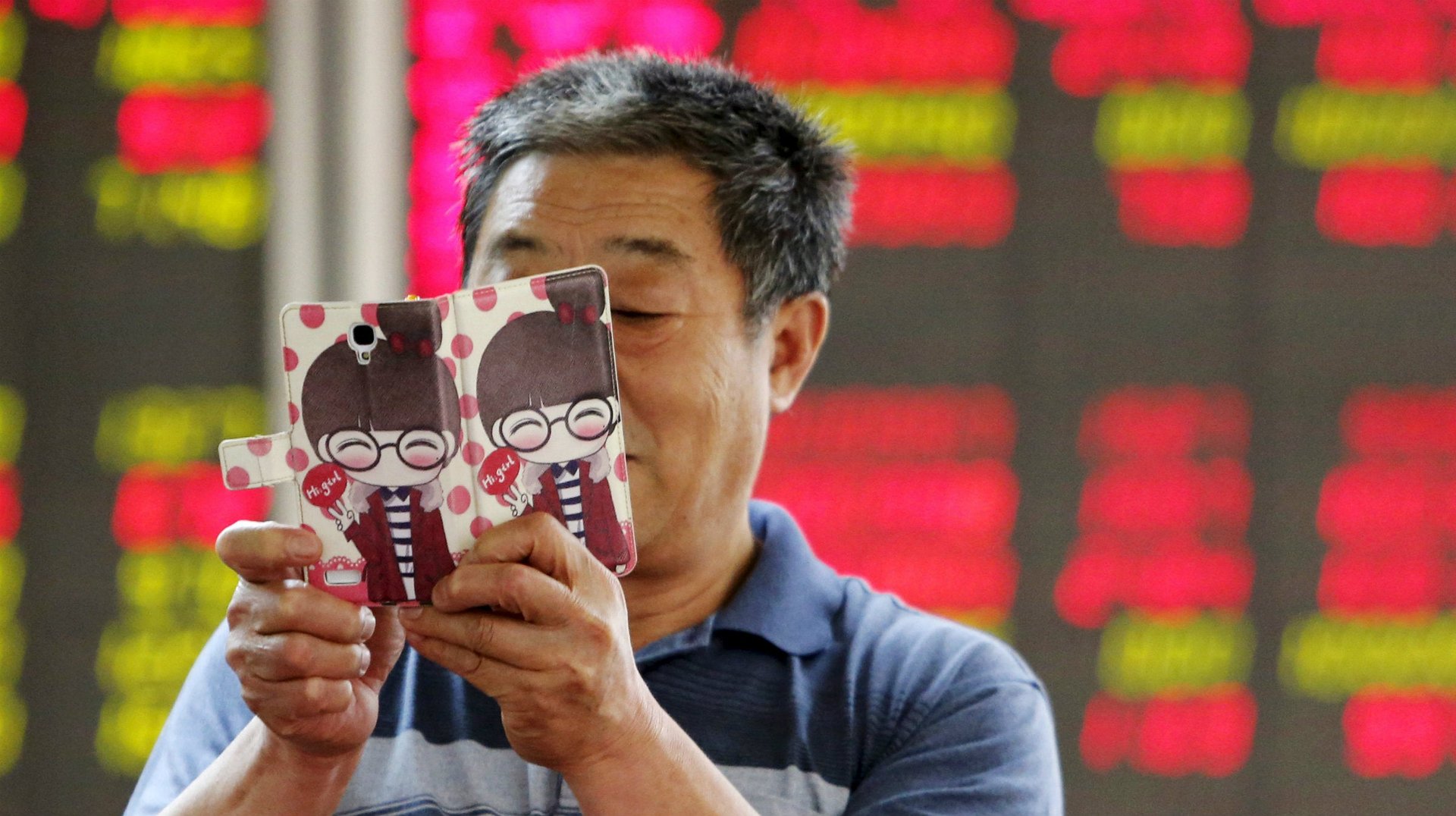China stabilized its markets by forcing companies and their employees to buy shares
China’s market rout ended July 9, after government regulators ordered listed companies, state-owned enterprises, and their employees to buy stocks.


China’s market rout ended July 9, after government regulators ordered listed companies, state-owned enterprises, and their employees to buy stocks.
The Shanghai Composite Index ended up 5.76% and the Shenzhen A-share Index rose 3.75%, and both were up in morning trading on July 10.
These increases happened in reduced markets—about half of China’s listed stocks have voluntarily stopped trading, in what is believed to be an attempt to ride out the downturn.
The regulators’ recent orders were the most extreme yet in a long list of government stimulus measures that have been introduced since China’s stock markets started sliding.
A senior executive at a listed Chinese company told the 21st Century Business Herald (link in Chinese) that the company received “administrative orders” from the China Securities Regulatory Commission (CSRC) to carry out one of five measures:
- Make major shareholders in the company buy more shares
- Buy back shares of its own stock
- Make directors, managers and senior executives buy stock
- Introduce stock-buying incentives for employees
- Introduce employee stock ownership plans.
The State-owned Assets Supervision and Administration Commission, which supervises government-owned companies, ordered its provincial bureaus to compile daily reports of which state companies were buying stocks and how much they were buying, Sina News reported today (link in Chinese).
“After the central bank, Ministry of Finance, and CSRC joined hands to make commitments to the market to provide liquidity, market confidence is restored,” Yang Xiaolei, analyst at HuAn Fund in Shanghai told Quartz.
Leadership has called on companies to increase buying shares of their own stock, Yang said, and “that’s a positive signal.”
China’s domestic security agency also said July 9 it would investigate evidence of “malicious” short-selling. Asked what that might mean, Yang said he preferred not to discuss the issue because the government would define what is malicious.